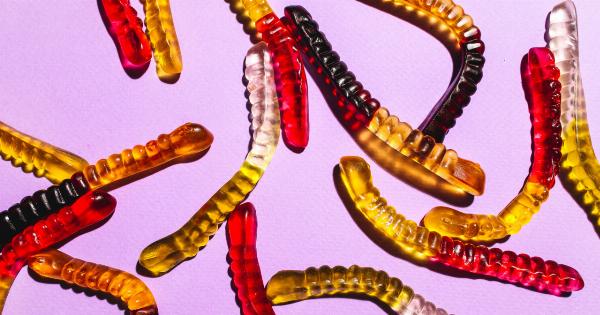Soft drinks have become a popular beverage choice for many people around the world. With their wide range of flavors and refreshing taste, they can be found in almost every supermarket, restaurant, and convenience store.
However, while soft drinks may seem harmless, they can have a significant impact on your body just one hour after consumption. In this article, we will explore the effects that soft drinks can have on your body and why it is important to be mindful of their consumption.
Increase in Blood Sugar Levels
One of the immediate effects of consuming soft drinks is the sudden spike in blood sugar levels. Soft drinks are often loaded with added sugars, which can be quickly absorbed into the bloodstream.
This rapid increase in blood sugar can lead to an energy burst, followed by a crash as insulin levels rise to regulate the sugar levels. This rollercoaster effect can leave you feeling tired and sluggish, only an hour after consuming a soft drink.
Dehydration
Soft drinks, especially those that contain caffeine, can act as diuretics, causing increased urination. This, in turn, can result in dehydration. Dehydration can lead to a range of symptoms, including headaches, dry mouth, dizziness, and fatigue.
It is important to note that although soft drinks may quench your thirst momentarily, they can actually contribute to overall dehydration.
Weight Gain
Regular consumption of soft drinks has been linked to weight gain and even obesity. Soft drinks are often high in calories and sugar content, offering little to no nutritional value.
When consumed in excess, these empty calories can lead to a gradual increase in weight over time. Additionally, the high sugar content of soft drinks can disrupt normal appetite regulation, leading to overeating and further weight gain.
Impact on Dental Health
The consumption of soft drinks has been strongly associated with poor dental health. Soft drinks are highly acidic and can erode tooth enamel, leading to tooth decay and cavities.
The combination of acids and sugars in soft drinks creates an ideal environment for bacteria growth, further increasing the risk of dental problems. These effects can start to occur within just an hour of consuming a soft drink.
Increased Risk of Chronic Diseases
Soft drinks have been linked to an increased risk of developing chronic diseases such as type 2 diabetes, heart disease, and metabolic syndrome.
The excessive sugar content in soft drinks can lead to insulin resistance over time, which is a precursor to the development of diabetes. Additionally, the high fructose corn syrup found in many soft drinks has been linked to increased cholesterol levels and an increased risk of heart disease.
Digestive Issues
Soft drinks can also wreak havoc on your digestive system. The carbonation in soft drinks can cause bloating, gas, and discomfort.
Furthermore, the high sugar content of soft drinks can disrupt the balance of beneficial bacteria in your gut, leading to digestive issues such as constipation and irritable bowel syndrome (IBS). These effects can become noticeable within just an hour of consuming a soft drink.
Increased Risk of Kidney Stones
The phosphoric acid found in many soft drinks can increase the excretion of calcium in urine, contributing to the formation of kidney stones.
The caffeine content in some soft drinks can also act as a diuretic, further increasing the risk of stone formation. Consuming soft drinks regularly can increase the likelihood of developing kidney stones, which can be extremely painful and may require medical intervention.
Negative Effects on Bone Health
The phosphoric acid in soft drinks can interfere with calcium absorption and weaken bones over time.
Regular consumption of soft drinks, especially in place of healthier beverages such as milk, can lead to decreased bone mineral density and an increased risk of osteoporosis. This impact on bone health can start to occur within just an hour of consuming a soft drink.
Increased Risk of Obesity in Children
Soft drinks are a major contributor to the childhood obesity epidemic. The high sugar content and lack of nutritional value in soft drinks can lead to excessive calorie intake in children, leading to weight gain and obesity.
Additionally, the marketing strategies employed by soft drink companies specifically target children, further promoting the consumption of these unhealthy beverages.
Disruption of Hormonal Balance
Soft drinks, particularly those that contain artificial sweeteners, can disrupt the hormonal balance in the body.
Certain artificial sweeteners, such as aspartame, have been linked to hormonal imbalances, including alterations in appetite regulation and an increased risk of metabolic disorders. These effects can occur within just an hour of consuming a soft drink with artificial sweeteners.
Conclusion
While soft drinks may provide instant refreshment and satisfy your taste buds, they can have a detrimental impact on your body just one hour after consumption.
From increased blood sugar levels and dehydration to weight gain and negative effects on bone health, soft drinks should be consumed in moderation, if at all. It is important to prioritize healthier beverage choices such as water, herbal teas, and natural fruit juices to protect your overall well-being and prevent the potential health risks associated with soft drink consumption.


























